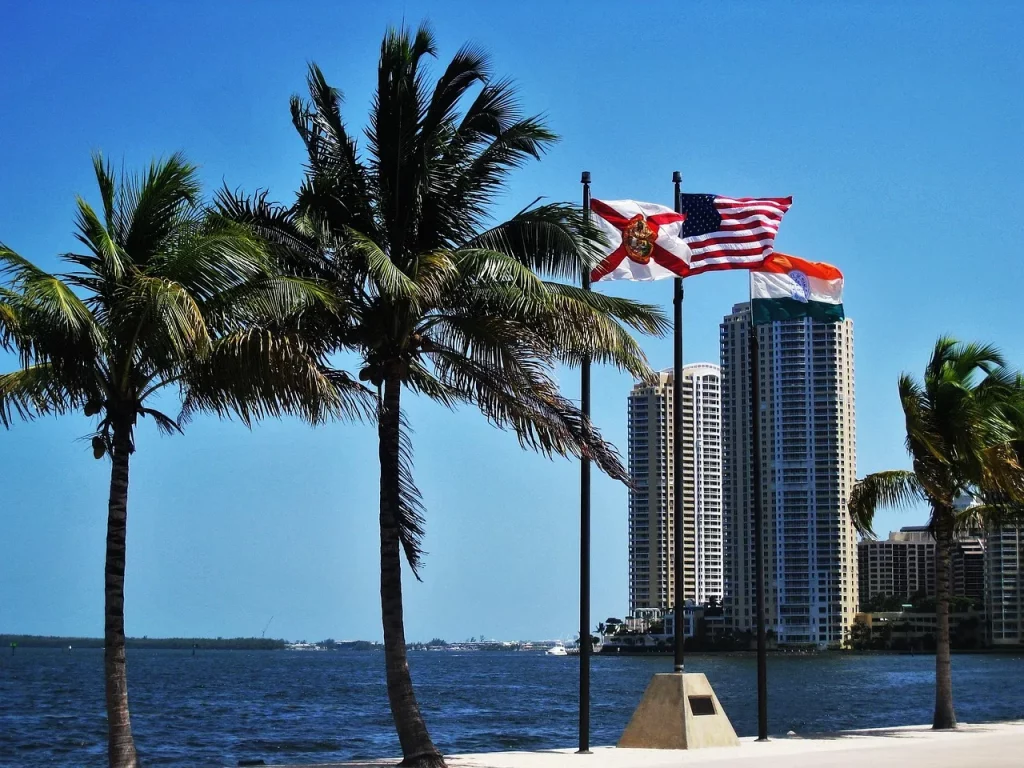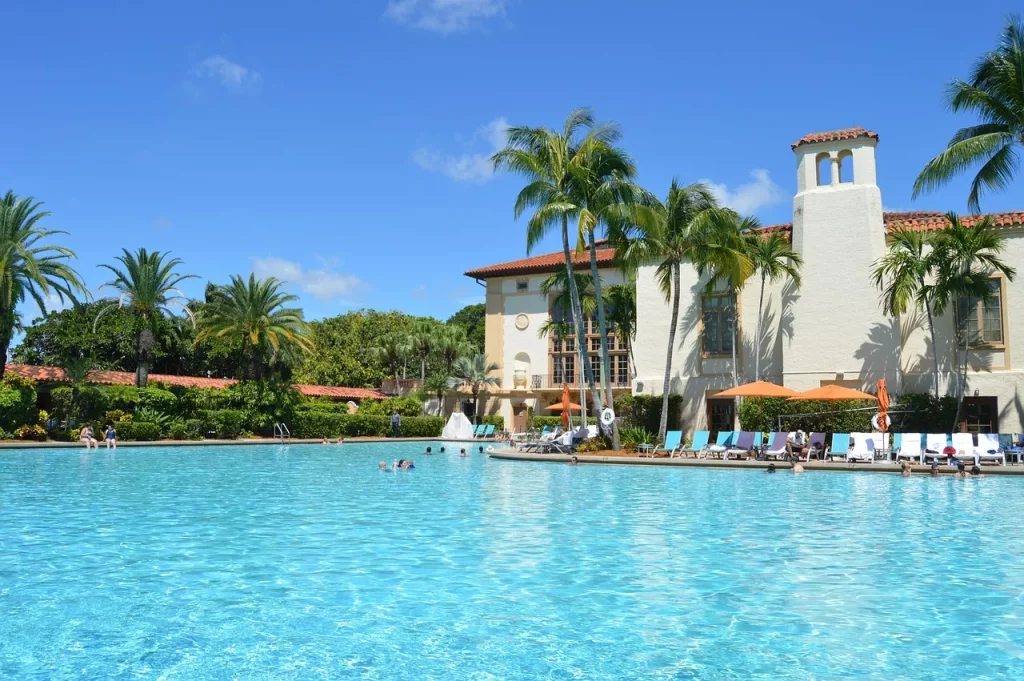Staying compliant with South Florida pool chemical regulations is not just a matter of legal responsibility – it’s also crucial for ensuring the safety of your pool users and the longevity of your pool system.
Whether you’re a homeowner, property manager, or commercial pool operator, understanding current local and state guidelines for chemical usage, chemical storage, and permitted chemicals is essential.
In this article, we’ll break down the most current standards, offer professional insights, and explain how MM Pool & Spa Services Corp. helps South Florida pool owners maintain compliance year-round.

Pool owners in South Florida must adhere to a combination of Florida state regulations and more localized guidelines issued by counties such as Miami-Dade, Broward, and Palm Beach. These rules are primarily governed by the Florida Department of Health (FDOH) and local health departments to ensure public safety and environmental protection.
Failure to maintain safe chemical balances may not only result in hefty fines but could also lead to temporary pool closures or health hazards.
Learn More: Essential Pool Chemical Safety Tips You Need to Know
Safe and compliant chemical storage is a huge component of pool management. The way you store your pool chemicals can drastically affect both their effectiveness and safety. According to South Florida authorities, pool chemicals should be:
Special attention must be paid to Material Safety Data Sheets (MSDS) and Safety Data Sheets (SDS) to ensure safe handling, shelf-life monitoring, and potential spill response protocols.
Only permitted chemicals are allowed for use in pools throughout South Florida. These include common disinfectants such as sodium hypochlorite (liquid chlorine), calcium hypochlorite (granular chlorine), and UV and ozone sanitizers approved by the EPA. Algaecides and pH balancers are also permitted if labeled for pool use.
Chemicals not registered with the U.S. Environmental Protection Agency and not explicitly allowed under Florida code should never be used. Homeowners and commercial managers alike must ensure all chemical labels are readable and dated to monitor expiration effectively.

Miami-Dade County has some of the most stringent pool safety and chemical regulations in the state. Public and semi-public pools must submit to periodic inspections, during which inspectors check chemical logs, equipment functionality, and the safe storage of chemicals.
Commercial pool operators are additionally required to have Certified Pool Operators (CPOs) on staff or contracted. MM Pool & Spa Services Corp. offers CPO-certified services to help you meet this requirement with ease.
Given South Florida’s sensitive ecosystems and proximity to water tables, improper disposal or runoff of pool chemicals is a serious concern. Always consult a licensed pool technician, like MM Pool & Spa Services Corp., to handle disposal and dosages safely. Our professionals help you follow guidelines while minimizing environmental impact.
We understand that regulations can be complex and time-consuming to manage, especially in South Florida. At MM Pool & Spa Services Corp., our experts offer fully compliant pool chemical management including:
We serve clients throughout Miami-Dade, ensuring their pools meet all local and state chemical safety standards.
Also Related: Deaths from Flesh-Eating Bacteria Are on the Rise: What Pool Owners in Florida Should Know
Understanding and following South Florida pool chemical regulations is crucial for pool safety, user health, and environmental preservation. From ensuring proper chemical storage to using only permitted chemicals, every element plays a role in keeping your pool safe and operational.
Trust MM Pool & Spa Services Corp. to help you navigate these requirements with professionalism and local expertise.
Frequently Asked Questions
Public pools in South Florida must maintain chlorine levels between 1.0–10.0 ppm and a pH range of 7.2–7.8 to comply with Florida Department of Health standards.
Yes. Only EPA‑registered disinfectants—such as sodium hypochlorite (liquid chlorine), calcium hypochlorite (granular chlorine), and approved UV or ozone sanitizers—are allowed. All chemicals must also adhere to OSHA storage guidelines, including safe separation and labeling.
Daily chemical logging is required—especially for commercial pools—to document chlorine, pH, and other sanitation levels.
Pool chemicals should be stored:
Yes. In Miami‑Dade County, for example, public and semi‑public pools undergo periodic inspections for chemical logs, equipment function, and proper chemical storage. Commercial operators are also required to employ Certified Pool Operators (CPOs).
South Florida’s vulnerable ecosystems—combined with its proximity to water tables—mean that improper chemical disposal can seriously harm the environment. Proper dosing and disposal by licensed technicians are critical to safeguarding local ecosystems.
Pools may face hefty fines, temporary closure, or additional penalties. Ensuring compliance with chemical balance, storage, and documentation is key to avoiding enforcement actions.
MM Pool & Spa Services Corp. offers: